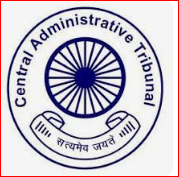The Ernakulam Bench of the Central Administrative Tribunal (CAT) has directed the Kerala State government not to issue orders of appointment, transfers and postings to IAS officers in cadre posts without obtaining recommendations from the Civil Services Board (CSB).
The Coram comprising Justice Sunil Thomas (Judicial member) and K.V. Eapen (Administrative member) noted that it was important to obtain recommendations from CSB to ensure minimum tenure as directed by the Supreme Court in T.S.R Subramanian & Others vs Union of India & Others (2013) and as per the Indian Administrative Service (Cadre) Rules, 1954 and Indian Administrative Service (Cadre) Amendment Rules, 2014.
The Tribunal noted that the Kerala IAS Officers Association (applicant) had a prima facie case and were entitled for an interim order.
The applicant, a registered association for IAS officers of Kerala cadre, approached the Tribunal against the orders of transfers and appointments of IAS officers in Kerala in violation of the Cadre Rules and without adhering to the directions issued by the Apex Court in T.S.R Subramanian (supra).
The applicant mentioned the Cadre Rules and Supreme Court judgement in T.S.R Subramanian (supra) case, which ruled that an IAS officer appointed in a cadre post has to hold the post for a minimum period of two years, unless promoted, retired or sent on deputation outside the state or on training beyond two months.
The petition submitted that a cadre officer could be transferred before completion of the minimum tenure of two years, only on the recommendation of CSB.
The CSB constituted in Kerala comprised Chairman (Chief Secretary of the State), Member (senior most Additional Chief Secretary) and Member Secretary (Additional Chief Secretary -P&ARD).
The applicant alleged that CSB has not convened meetings after initial meetings, which were held back in 2014 and 2015. It said the transfers and appointments in the state were done at the will of political executives without obtaining recommendations of the CSB and contrary to the IAS Cadre Rules.
The respondents raised four contentions before the Tribunal.
They said the resolution passed by the IAS Officers Association did not authorise the Secretary to seek relief concerning the transfer and posting of IAS Officers. They submitted that the original application filed before the Tribunal did not disclose specific individual grievances.
The orders of transfers and postings have to be challenged by aggrieved persons and not by an association, noted the organisation.
They said the IAS Cadre (Amendment) Rules, 2014 did not mandate that postings and transfers of officers shall only be done on the recommendation of the CSB.
The Tribunal noted that two reliefs were sought by the applicants, first against the appointment and transfers of IAS Officers in Kerala in breach of the Cadre Rules and the second relief against posting non-IAS cadre officers or any other officers to posts notified for IAS Kerala Cadre.
Noting that the IAS Officers Association was a registered association and its Secretary was authorised to approach the Tribunal, the CAT said that the right of the association to espouse the causes of its members could not be rejected based on mere technicalities.
It added that the resolution passed by the Executive Committee of the association discussed issues including transfers of IAS officers without convening CSB and posting of non-cadre IAS officers to IAS Kerala Cadre.
The Tribunal Bench referred to Rule 4 of the Central Administrative Tribunal (Procedure) Rules and observed that the Tribunal could permit a single application when persons had a common interest based on their cause of actions and reliefs.
It further stated that an association could represent the affected persons and file a single application.
Referring to Rule 7 of the Central Administrative Tribunal Rules of Practice, the Tribunal said that an association as a collective group could represent the grievances of all its members.
The association was empowered to represent the collective grievances of its members by a single application as there was apprehension of breach of provisions, it added.
It took note of the fact that CSB has only held one or two meetings in 2014, 2015 and it was not convened or consulted after that. It also noted that the applicants stated that many officers were appointed and transferred without taking recommendations from CSB.
The Tribunal noted that these facts were not disputed by the respondents which meant that the allegations were prima facie, established, as not disputed.
Referring to the Apex Court verdict in T.S.R Subramanian (supra), it said the judgement considered the issue of minimum tenure to ensure that IAS officers were able to effectively function in a democratic polity and to safeguard them from political influences.
Pursuant to the directives of the Apex Court, the Cadre Rules were amended for constituting the CSB, pointed out the Tribunal and ruled that the state government cannot act contrary to the directions issued by the Apex Court.
Issuing notice to the respondents, the Tribunal listed the matter for further hearing on January 10, 2024.
Advocate Girija K. Gopal appeared for the applicant, while the respondents were represented by Advocates Thomas Mathew Nellimoottil, Government Pleader Baijuraj G. and Special Government Pleader T.B. Hood.
(Case title: Kerala IAS Officers Association v Union of India represented by the Secretary to Government)


